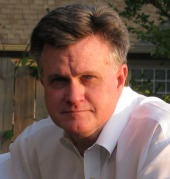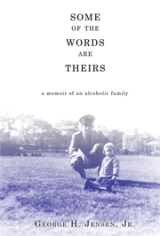It is hard to sort out feelings. It is hard to know what to think.
In the days after the election I have heard troubling stories. The stories are in the news and they are told by your friends. I am only going to repeat two. A first-grader told her teacher, “I am afraid to be a girl.” A Hispanic high-schooler was told, as he walked into his school, “You might as well go home. You are going to be deported soon.” I’m sure you have heard similar stories.
I am worried about how we will treat each other, but I am also worried about other things.
Oddly, for the first time in my life, I find myself worrying as if I were both a Democrat and Republican. I am worried about what a Trump Supreme Court will do to Roe v. Wade. I am also worried about how Trump’s proposed tax cuts and spending plans will balloon the deficit.
If that’s not enough, I am also worried about the future of democracy. This worry has been building for a while.
I am worried about truthiness. From Lee Atwater and Carl Rove, we have learned that truth is created through repetition, not evidence or dialogue. Keep saying it, and the citizens will, at some point, start believing it.
I am worried about fake news and how most of our fellow citizens, including Trump’s appointed National Security Advisor, can’t seem to tell the difference between fake news and real news.
I am worried about how Big Data collected from Facebook and your Fitbit watch (just two examples, alas) creates what Sue Halpern recently called “another you” (New York Review of Books, 22 December 2016). Halpern points out that this data is often wrong, but in many ways the Big Data you is more real than the real you.
I am worried about how analytics have created a new class of super voters, maybe those living in a single county of a single state, who can swing a national election. This may have always been reality, but knowing who these voters are so that they can be targeted and privileged does change reality.
Because of the expansion of mass media and social media, we have never lived in a culture where information is more abundant and more dangerous. The future that, in 1935, Walter Benjamin predicted—the time when there will be more information and less knowledge—is here.
As I suggested in my last post, we might be living alternative history. Or we might find ourselves on the pages of a dystopian novel. More likely, we might be entering a reality where our future president has enough successes that everything seems more or less okay—on the surface—while we move further from the democracy our forefathers imagined.
These are uncertain times.
I am only certain about two things. Our institutions will be tested. Our character will be tested.



On a panel discussion a month ago, I said the important question for me was whether our institutions will hold. One of my colleagues expressed 100% certainty that they would. I for one am not at all sure.
I saw what happened under Bush II–the secret legalization of torture, and the NOTHING that happened afterwards as a result. I also lived in Germany for many years, exploring the question of how Nazism could have happened over there. I feel like I’m understanding it even better now.
We will see.
Also, George, I think you mean 2016, not 1916, above.
Dani
LikeLike
By: Dani Weber on December 13, 2016
at 6:59 pm
I think the damage is going to be subtle. Thanks Dani.
LikeLike
By: George on December 16, 2016
at 1:31 pm